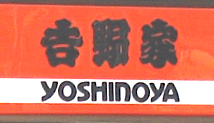Down and Dirty with the Samurai
Given all the insistence on precision in certain parts of the kanji world, I'm always shocked when native speakers take loosey-goosey attitudes toward a kanji matter. They do so quite often, but I suppose I'm easily shocked! So it was this week when I was doing preliminary research for essay 2097 on 阪 (slope; Osaka), which has everything to do with 大阪 (おおさか: Osaka). It turns out that that wasn't the original way of writing the city name. Instead, an earlier version (among many) had 坂 as the second kanji.
So why did they change it? One of my proofreaders found this explanation on Chiebukuro:
一説に「坂」から「阪」への変更は、明治新政府が「坂」が「士が反する」、すなわち武士が叛くと読めることから「坂」の字を嫌ったとも、単に、役人の書き間違えの言い訳から定着したとも言われています。
In other words, people could interpret 坂 in two possible ways, both of them unlucky:
to return (反) to the soil (土)
warriors (士) rebel (反)
Trying to understand this, I scrutinized the Japanese explanation, particularly this puzzler:
「坂」が「士が反する」
Hey, wait. With 士 (samurai), didn't Chiebukuro use the wrong kanji?! After all, 坂 contains the "earth" radical, 土, which has a shorter top stroke.
I asked the proofreader, who said, "For Japanese people 土 and 士 look quite alike and are flexible in the imagination. We wouldn't question it if someone took one for the other."
What?! This doesn't match anything I've heard or experienced. As a sanity check, I turned to another proofreader, asking about the contexts in which people treat 士 and 土 as interchangeable and the limits on this, if any. Here's the answer I received:
Are the 土 and 士 radicals interchangeable? No. Do people treat them as if they were? Yes.
As for 坂, it’s definitely 土 + 反 if one has the slightest idea of where it comes from, and parsing it as 士 + 反 is simply a mistake. But it could be seen as 士 + 反 if one wanted to see it that way, simply because the components 土 and 士 look so much alike.
And we're so superstitious about kanji that we'd like to exclude any negative or disadvantageous meanings. In this case, somebody apparently noticed that 坂 COULD be interpreted as "warriors' rebellion," which should have been very unpleasant for the Meiji government (hence the change from 大坂 to 大阪 in Meiji 4, or 1871). It’s not that the 土 and 士 were actually interchangeable.
In one case, however, 土 and 士 are considered interchangeable in a way. The kanji 吉 usually breaks down as 士 + 口, but in some people's surnames or given names it's written as 土 + 口. This kind of special 吉 is electronically supported only in some limited environments. Yoshinoya, the beef bowl place, uses this kanji in their sign:

A Chiebukuro post explains how to type the Yoshinoya 吉.
I'm shocked all over again because 吉 itself means "lucky, auspicious." Who would want to mess with that, especially by bringing dirt into the picture? And if you had to have something on your mouth (口), would you really want it to be dirt? Then again, I'm not sure I would want a samurai atop my mouth either!
In other news, essay 2048 on 箋 has posted. You can see a sneak preview here:

And later today the April newsletter will come out, as well, so be on the lookout for that!
Have a great weekend!

Comments